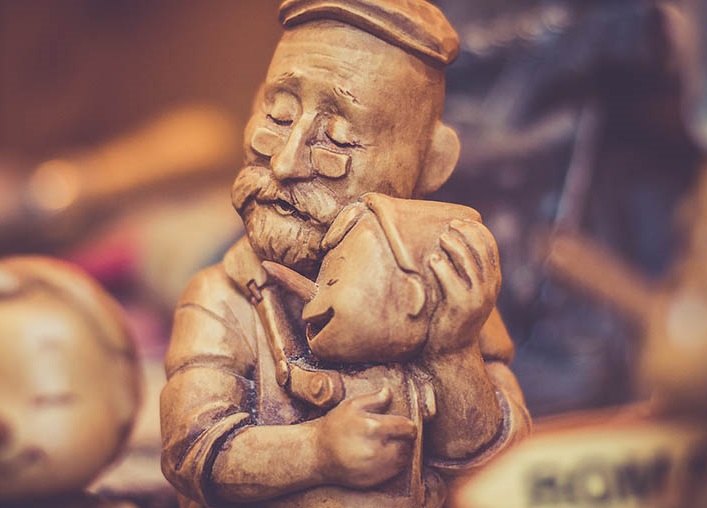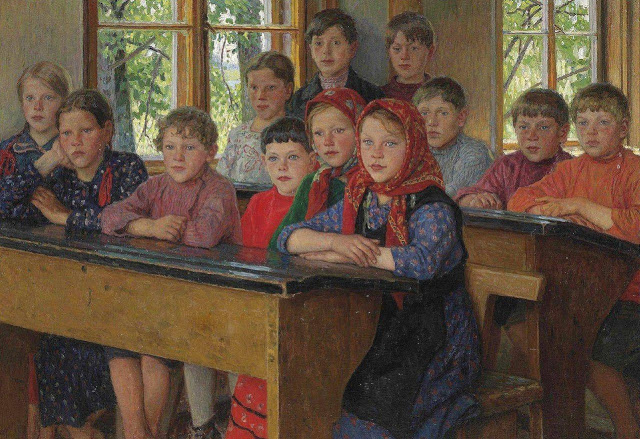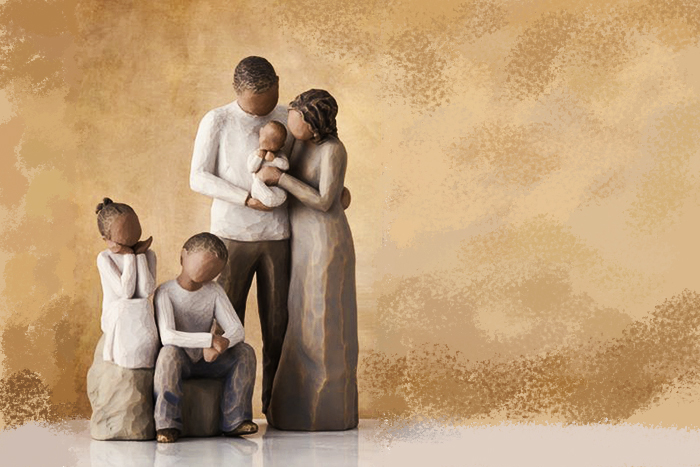
St. Luke was born in Ellada (Greece) to a poor peasant family. He herded sheep and tilled land. He was marked by exceptional piety since his youth. He was modest, taciturn, and ate little food; he was fond of helping the poor, so he often gave them the food that he had taken with him from home, and remained hungry. When his father died, he secretly left his mother and went to become a monk. His mother was sorry for his abrupt departure and prayed to God for his return. What happened next? The abbot of the monastery where Luke stayed had several visions of a woman who reprimanded him, “Why do you wrong me a poor widow? Allow my only son to come back home and comfort my old age, otherwise I won’t stop praying to God.” The same vision repeated on the second and the third nights. The abbot attributed those visions to God, called Luke and chastised him, “How did you dare lie to us? You said you didn’t have parents but your mother has been coming to me in a dream three nights in a row? Return to your mother immediately.” Luke bowed to the abbot, said goodbye to the brothers, and went back to his mother. His mother was exceedingly happy! She thanked God and then hugged her son. Luke spent four months with his mother and asked her to let him go back to the monastery. This time, his mother blessed him and let him go.
Dear brothers, think about this story. Can you see that the actions of the young Luke, which was generally pious, holy, and God-pleasing, didn’t however receive God’s blessing. It turned out to be that way because he had hurt his mother by being selfish. He didn’t appreciate her love and care. He refused to provide comfort and peace to her and upset her with his unexpected disappearance. That is why you shouldn’t begin anything or agree to fill any position without your parents’ advice and blessing.
What shall we say now about the sin of disrespecting your parents?
a) Children who respect their parents enjoy long and happy lives according to God’s promise because they keep their bodies and souls whole and healthy by following the good rules that their parents established and by not being willful. They are forever accompanied by their parents’ blessing, which is later passed on to their children because, as the wise son of Sirach claims, The father’s blessing establisheth the houses of the children (Sirach 3:11). Remember the blessing that Noah gave to his son Japheth, May God enlarge Japheth. This blessing continues even nowadays in Japheth’s descendants.
b) Woe to the children who don’t pay due respect to their parents! The Word of God threatens them with great tribulations. Cursed be he that setteth light by his father or his mother (Deuteronomy 27:16). Whoso curseth his father or his mother, his lamp shall be put out in obscure darkness (Proverbs 20:20). [T]he mother’s curse rooteth up the foundation (Sirach 3:11).
The Mosaic Law entitled parents to complain of their insolent and disobedient sons to the elders of the city, who, after verifying their claim, would sentence the rude children to execution by stoning, which was fulfilled solemnly by everyone in the general assembly (See Deuteronomy 21:18-21; 27:16).
c) Let us give several examples of God’s punishment that befell children who were disrespectful of their parents.
Ham, who blatantly offended his righteous father Noah and mocked at him, subjected all his descendants to God’s wrath and perpetual slavery.
Judas, son of Jacob, had a son named Er. The boy was evil and insubordinate, and that was the reason why, as the Scripture tells us, the Lord slew him (Gen. 38:7).
Eli the Priest had two sons. They were evil, recalcitrant, and impious. That was why the Lord killed them when they were at the peak of their power and health. They were killed in battle, of which God let Eli know in advance.
Holy King and Prophet David had a disrespectful son by the name of Absalom who attempted a coup d’état against his father. As a result, not only was he unsuccessful in his evil plan but he also lost his life (2 Sam. 18:9).
May these examples deter us from dishonoring our parents and from suffering God’s wrath and the terrible consequences that it entails.
Translated by The Catalog of Good Deeds



